Rechargeable Electrical Energy Storage Systems
Network for Energy and Sustainable Transition
Boiling Evaporation and Advanced Refrigeration Systems
Thermal and Energy Advanced Management
Heat Transfer Enhancement
Applied Electro-magnetism Lab
Want to see energy in action? The laboratories of our degree programs offer much more than traditional lectures: they are fully equipped, innovative spaces open to all students eager to engage in hands-on engineering.
Here, you will have the opportunity to experiment, design, and explore advanced technologies, developing essential practical skills for your future.
From energy storage systems to thermos-fluid dynamics, from refrigeration systems to electromagnetic circuits, you will engage with a wide range of topics using cutting-edge instruments and with the support of faculty and researchers.
If you are currently attending upper secondary school, you can access the labs through PCTO (school-to-work transition) programs.
If you are enrolled in one of our degree programs, the labs are available for coursework, individual or group projects, and thesis development (both Bachelor’s and Master’s).
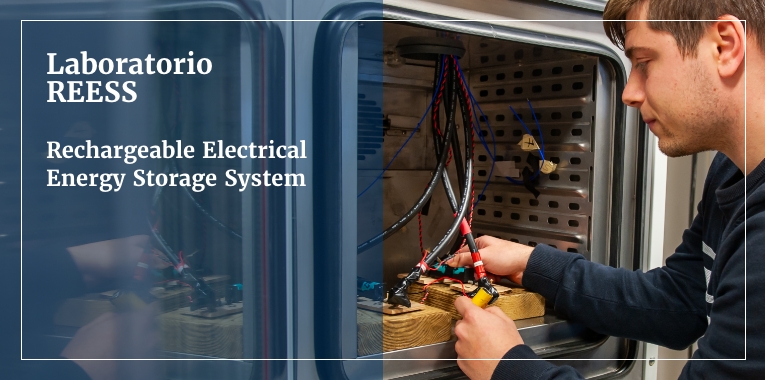
Equipped for the electrical and thermal characterization of battery-based energy storage systems.
Tested devices include various families of lithium batteries (LFP, NMC, NCA, LTO), nickel-metal hydride (Ni-MH) batteries, and supercapacitors.
Available tests include:
• Controlled charge/discharge under voltage and current constraints
• Energy measurements
• Capacity and efficiency under varying currents and temperatures
• Calibration tests for equivalent electrical models
• Aging and degradation tests
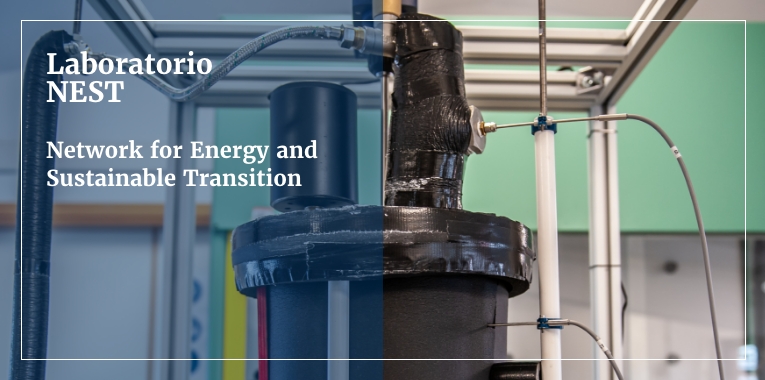
Dedicated to advanced methodologies and technologies for the energy transition, in line with NextGenerationEU and PNRR objectives. Focus areas include hydrogen conversion and utilization processes and thermal energy storage.
The lab includes:
• Workstations for design, simulation, and testing
• Measurement of thermophysical properties
• Thermofluid experiments using conventional and complex fluids
• Scale models of latent heat storage systems for analyzing charge/discharge dynamics under different operating conditions
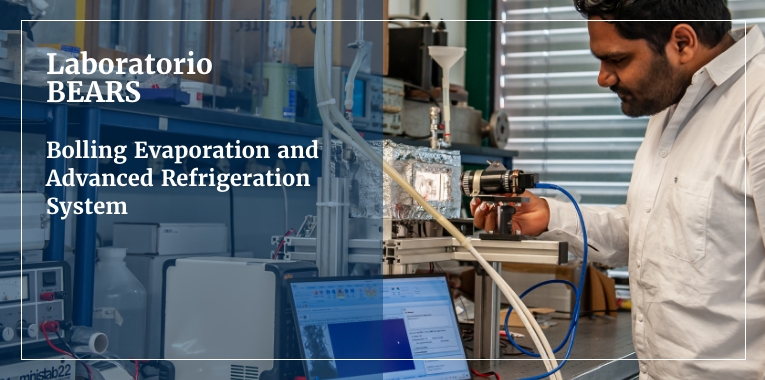
Focus areas include nucleate boiling, critical heat flux, and conditions of microgravity.
Also includes:
• Equipment for studying bubble dynamics and drop evaporation
• A test bench for small-scale refrigeration cycles using organic refrigerants and innovative solutions to maximize performance
• Apparatus for thermofluid characterization of metallic foams
The lab is equipped with advanced instruments for measuring temperature, flow rate, pressure, thermal conductivity, surface tension
Students gain fundamental and advanced knowledge of two-phase heat transfer phenomena.
The lab is equipped with advanced instruments for measuring temperature, flow rate, pressure, thermal conductivity, surface tension
Students gain fundamental and advanced knowledge of two-phase heat transfer phenomena.
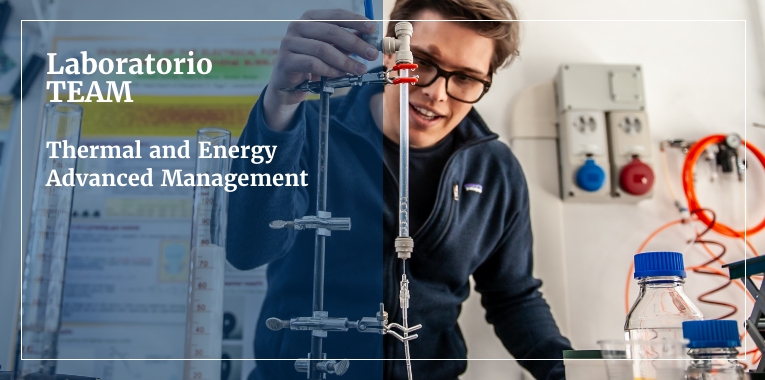
Specialized in Pulsating Heat Pipes (PHP) and phase-change composite materials, particularly for space applications.
Students work with advanced thermal exchange and control systems.
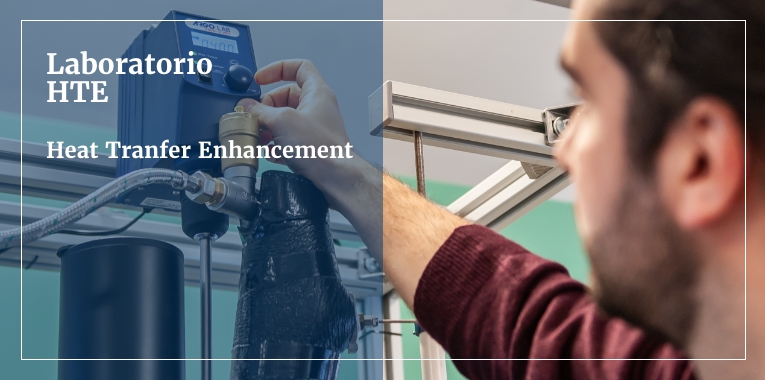
Equipped with ultrasonic baths for investigating acoustically enhanced heat transfer techniques.
Students conduct experiments on fundamental thermofluid dynamics.
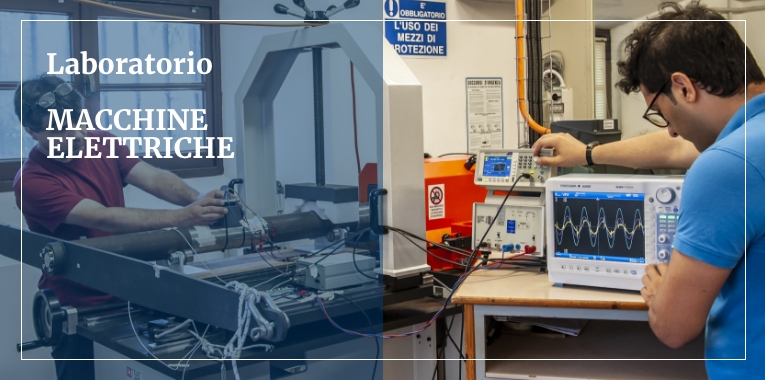
Students perform practical experiments on:
• Transformers (single- and three-phase): open-circuit and short-circuit tests, parameter identification
• Measurement of no-load and line currents, Y-Δ connections, harmonic analysis of currents and voltages
• Rotating machines (synchronous and asynchronous): open-circuit and locked-rotor tests using benches from 1 kW to 50 kW
• Experimental analysis of torque and efficiency characteristics
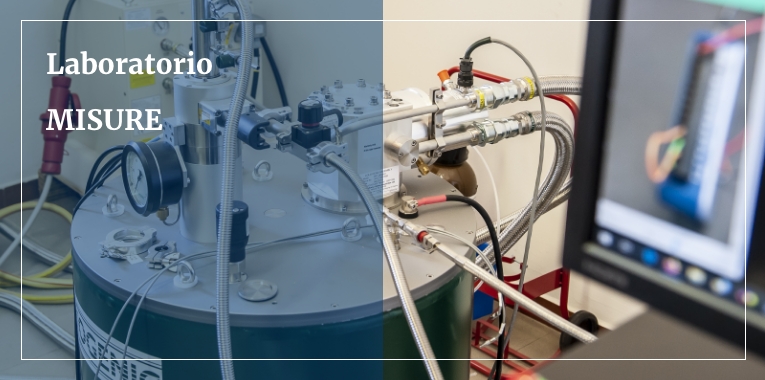
Used for both teaching and research, the lab features:
• Measurement tools for electrical, magnetic, and thermal quantities (e.g., resistance temperature detectors, thermal cameras, high-resolution multimeters, oscilloscopes, spectrum analyzers, high-speed data acquisition systems)
• Equipment for prototyping (e.g., 3D printers)
• Climatic chamber for thermal characterization of sensors and materials (-70°C to +180°C)
• Cryogenic system for material testing down to –271.3°C and magnetic fields up to 7 T
Scanning Electron Microscope (SEM) for morphological analysis of micro- and nanostructures
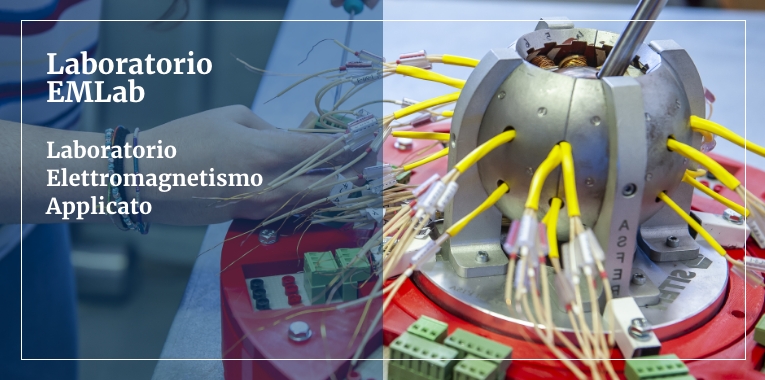
Students are involved in:
• Hands-on assembly of three-phase systems using transformers, cables, and loads
• Measurement of currents, voltages, and power
• Experiments on signal circuits, with a focus on resonant circuits
DESTEC – University of Pisa
Largo Lucio Lazzarino, 2, 56122 Pisa
Phone DESTEC: +39 050 2217300
© Copyright – INGEGNERIA DELL’ENERGIA | University of Pisa Lungarno Pacinotti 43 56126 Pisa | P.I. 00286820501 C.F. 80003670504